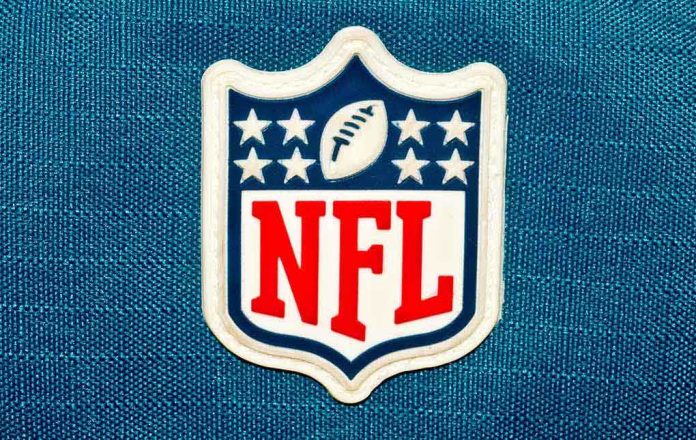
As the NFL grapples with another high-profile scandal, the arrest of Miami Dolphins coach Ryan Crow for alleged domestic violence has ignited intense debate over athlete conduct, team accountability, and the legal complexities that often allow powerful figures to avoid full scrutiny.
Story Snapshot
- Miami Dolphins coach Ryan Crow arrested for alleged domestic battery after multiple eyewitnesses reported physical aggression toward a woman.
- Crow placed on administrative leave as both the Dolphins and NFL launch internal reviews ahead of the season.
- The alleged victim declined to provide a sworn statement, complicating the legal process and raising questions about accountability.
- Incident underscores ongoing challenges the NFL faces regarding off-field conduct and the effectiveness of its personal conduct policy.
Arrest and Allegations Rock the Dolphins’ Coaching Staff
Miami Dolphins outside linebackers coach Ryan Crow was arrested just after midnight on a Friday at the Veneto Las Olas apartment complex in Fort Lauderdale. Multiple witnesses described seeing Crow physically assault a woman, including choking and slamming her, in what appeared to be a terrifying ordeal for the victim. Police arrived promptly and arrested Crow on a misdemeanor domestic battery charge. The woman involved, who resides with Crow, declined to give a sworn statement to authorities and reported no injuries at the scene.
The incident occurred only days before the NFL season, placing immediate stress on the Dolphins’ organization. Crow, newly hired in 2024 after a stint with the Tennessee Titans, had been expected to play a critical coaching role. The Dolphins responded by placing Crow on administrative leave, and senior defensive assistant Sean Ryan has temporarily assumed his responsibilities. Both the team and the NFL have initiated internal reviews, signaling a zero-tolerance stance but also highlighting the high stakes and public scrutiny facing professional sports organizations during legal crises.
Legal Complications and the Challenge of Prosecution
Despite several eyewitness accounts detailing aggression and fear, legal proceedings against Crow have become complicated. The alleged victim’s refusal to provide a sworn statement or testify leaves prosecutors reliant on third-party witness testimony and any available physical evidence. Crow appeared in court on Saturday, where his bond was set at $1,000, and he was ordered to stay away from the victim and undergo a substance abuse evaluation. As of now, Crow faces only the initial misdemeanor battery charge, with the investigation ongoing and no additional formal charges filed.
This situation exemplifies the broader issue of how legal cases involving high-profile sports figures can stall when victims are unwilling or afraid to cooperate. Legal experts note that such reluctance is common in domestic violence cases and often impedes the pursuit of justice, particularly when the accused holds a position of authority or public prominence.
League Response, Media Scrutiny, and Policy Implications
The Dolphins’ swift move to place Crow on indefinite administrative leave reflects heightened sensitivity to public relations and the NFL’s persistent struggle with off-field conduct scandals. Head coach Mike McDaniel emphasized the seriousness of the allegations and the importance of protecting the team’s reputation, echoing the NFL’s ongoing efforts to demonstrate accountability. This incident, like others before it, reinforces scrutiny over whether league policies and disciplinary actions are effective in deterring misconduct and ensuring victims’ safety.
Media coverage has been intense, with outlets nationwide highlighting both the gravity of the accusations and the procedural hurdles in bringing such cases to resolution. For the Dolphins, this disruption arrives at a crucial juncture, threatening to undermine team morale and distract from on-field preparations. More broadly, the episode reignites debate over the responsibility of sports organizations to act decisively when allegations arise and to foster a culture that prioritizes safety and ethics over winning at all costs.
Broader Impact: Accountability, Public Trust, and Organizational Change
Short-term effects include the immediate loss of a key coach and increased public scrutiny of the Dolphins’ internal culture. Longer-term, the case may prompt further review and tightening of league policies around personal conduct and victim support. The NFL’s handling of these issues remains under a microscope, with both fans and critics demanding transparency and meaningful reform. Regardless of the outcome of Crow’s legal proceedings, the incident has already left a mark on the Dolphins’ season and the league’s ongoing battle to maintain public trust in the face of recurring off-field controversies.
Sources:
Dolphins OLBs coach Ryan Crow accused of choking, slamming woman, per report – CBS Sports
Miami Dolphins coach Ryan Crow charged with battery, released from jail – CBS Miami
Dolphins OLB coach Ryan Crow to remain on indefinite leave – ESPN



